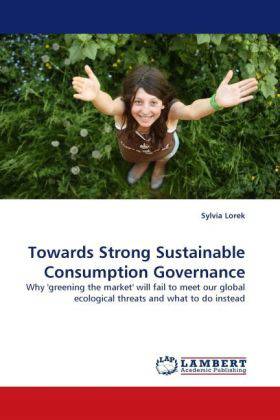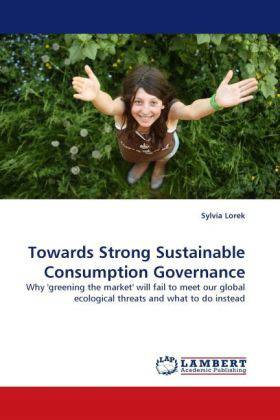
- Afhalen na 1 uur in een winkel met voorraad
- Gratis thuislevering in België vanaf € 30
- Ruim aanbod met 7 miljoen producten
- Afhalen na 1 uur in een winkel met voorraad
- Gratis thuislevering in België vanaf € 30
- Ruim aanbod met 7 miljoen producten
Zoeken
Towards Strong Sustainable Consumption Governance
Why 'greening the market' will fail to meet our global ecological threats and what to do instead
Sylvia Lorek
Paperback | Engels
€ 58,45
+ 116 punten
Omschrijving
Achieving sustainable consumption patterns is a crucial step on the way towards sustainability. However, unsustainable consumption patterns are still dominating. To advance the debate, this book develops the concept of Strong Sustainable Consumption Governance. It defines Strong Sustainable Consumption Governance as governance that targets consumption levels, especially in affluent countries, rather than merely hoping for technological solutions that would allow ongoing economic growth. The book argues that only the precautionary approach of Strong Sustainable Consumption Governance offers the potential to actually achieve sustainable development. Based on a resource consumption approach and the limited availability of resources - including the existing sink capacity of the ecosystem - the book also considers their use and distribution among the Earth's population and examines its contribution to human well-being. The book debunks the naive assumption of solving the threats of global warming, resource scarcity or peak oil by the mere greening of the market and a promotion of sustainable consumer procurement.
Specificaties
Betrokkenen
- Auteur(s):
- Uitgeverij:
Inhoud
- Aantal bladzijden:
- 148
- Taal:
- Engels
Eigenschappen
- Productcode (EAN):
- 9783838336305
- Verschijningsdatum:
- 21/06/2010
- Uitvoering:
- Paperback
- Formaat:
- Trade paperback (VS)
- Afmetingen:
- 152 mm x 229 mm
- Gewicht:
- 226 g

Alleen bij Standaard Boekhandel
+ 116 punten op je klantenkaart van Standaard Boekhandel
Beoordelingen
We publiceren alleen reviews die voldoen aan de voorwaarden voor reviews. Bekijk onze voorwaarden voor reviews.











